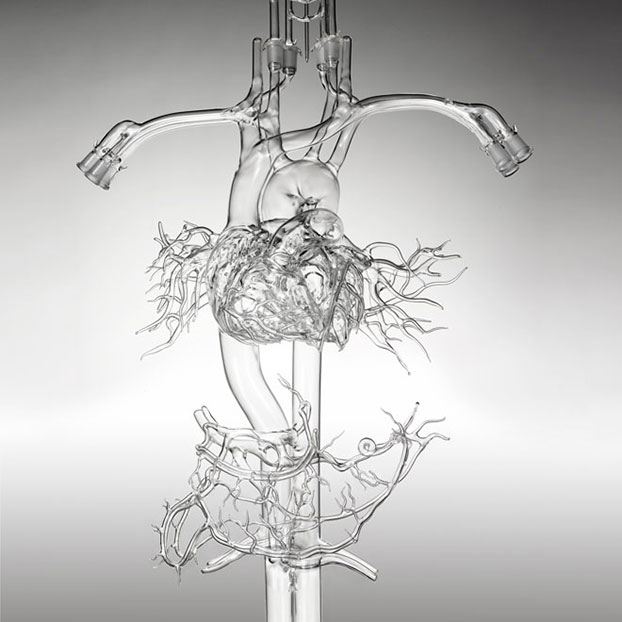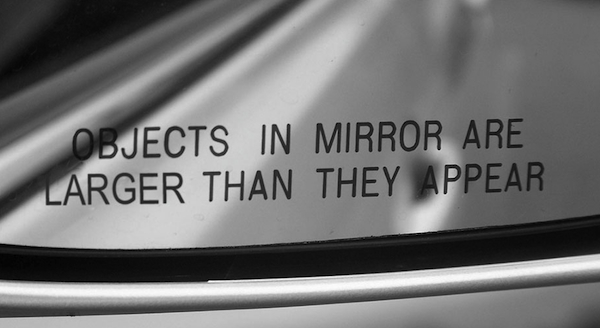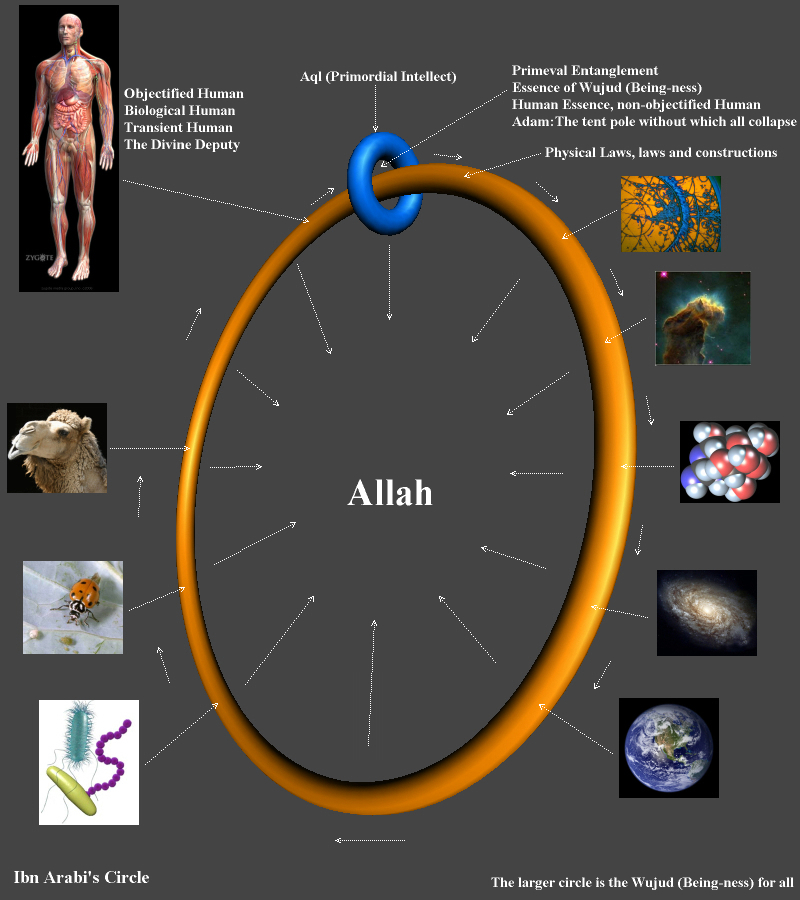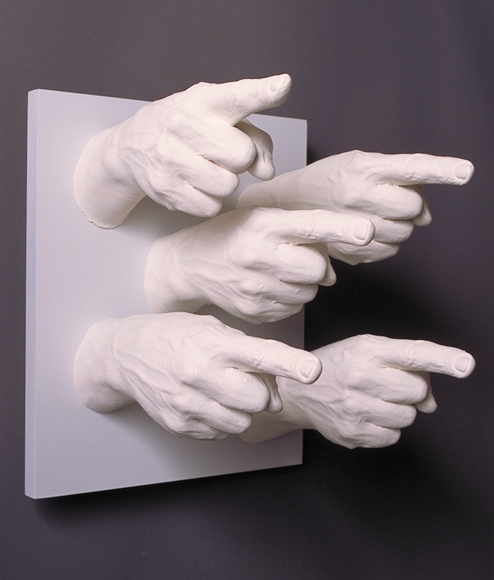 Zahir vs. Batin: Perceptible vs. Intrinsic
Zahir vs. Batin: Perceptible vs. Intrinsic
Based upon the research by Imam Al-Suyuti:
الفوئد البارزة و الكامنة في النعم الظاهرة و الباطنة
Source: http://www.untiredwithloving.org/suyuti_zahir_batin.html
Introduction
Suyuti quotes a Hadith (Prophetic Narration) from Ibn Abbas (perhaps with regards to the following verse), wherein Ibn Abbas asks about these seen and unseen blessings:
31:20 Do ye not see that Allah has subjected to your (use) all things in the heavens and on earth, and has made his bounties flow to you in exceeding measure, (both) seen and unseen?
أَلَمۡ تَرَوۡاْ أَنَّ ٱللَّهَ سَخَّرَ لَكُم مَّا فِى ٱلسَّمَـٰوَٲتِ وَمَا فِى ٱلۡأَرۡضِ وَأَسۡبَغَ عَلَيۡكُمۡ نِعَمَهُ ۥ ظَـٰهِرَةً۬ وَبَاطِنَةً۬ۗ وَمِنَ ٱلنَّاسِ مَن يُجَـٰدِلُ فِى ٱللَّهِ بِغَيۡرِ عِلۡمٍ۬ وَلَا هُدً۬ى وَلَا كِتَـٰبٍ۬ مُّنِيرٍ۬
The Prophet peace be upon him replies:
The Zahir (Perceptible) blessings are the submission to Allah (Islam) and what goodness in your creation and abundance of provisions, and the Batin (Intrinsic) is the concealment of the defects within you (i.e. Allah placed veils to conceal our foulness and faults from others to witness)…
المجلد الثاني >> الفصل الرابع في التفسير من فصول الباب السابع في القرآن وفضائله، من الكتاب الثاني من حرف الهمزة في الأذكار من قسم الأقوال من كنز العمال في سنن الأقوال والأفعال >> (التفسير من الإكمال) من الفصل الرابع في التفسير
3024- أما الظاهرة فالإسلام وما حسن من خلقك، وما أسبغ عليك من الرزق، وأما الباطنة يا ابن عباس، فما ستر عليك من عيوبك، إن الله عز وجل يقول: إني جعلت للمؤمن ثلث ماله بعد وفاته، أكفر بها خطاياه بعد موته، وجعلت المؤمنين والمؤمنات يستغفرون له، وسترت عليه عيوبه التي لو علم بها أهله دون عبادي لنبذوه.
(ابن مردويه (هب- (من المنتخب)) والديلمي وابن النجار عن ابن عباس) أنه قال: يا رسول الله قول الله {وأسبغ عليكم نعمه ظاهرة وباطنة}.
(قال فذكره – (من نظ)).
Then Suyuti continues with a list of Zahir blessings vs. Batin blessings:
Remark: Reader should read the example/metaphor of blessings below to collect a unit understanding of the two distinct forms of blessings. So the examples individually are lesser, their collective understanding and feeling is the desired effect.
Terminologies:
Zahir: Visible, perceptible, distinct, manifest, obvious, clear, patent, evident, apparent, external, exterior, outward, seeming, presumed, outside.
Batin: Inner, interior, inward, inmost, intrinsic, hidden, secret.
Zahir the images, Batin the light.
Dara: This world is all but projection of images which form many of our blessings, and the light to see these images intrinsic shining inmost within.
Zahir the goodness of creation (Khalq), Batin the goodness of behavior (Khuluq).
Dara: Just look at, and easily can be seen, how your body is engineered anywhere from molecular level to macro level of skin and bones and nerves and all the amazing machinery of your creation. And in a more concealed inmost manner see the goodness of human behavior and conduct mostly beyond engineering explanations, both are blessings from Allah. We could easily explain how the muscles work, or how the neuron circuits work the brain, but oblivious to how human conduct forms and performs, and what of good in that all, blessings from Allah beyond any explanation thus concealed in nature.
Zahir the existence of blessings, Batin observing the benefactor.
Dara: To understand and benefit from the photosynthesis empowered by a distant start (Sun) and amazing variation of botanical and microbial and molecular light sensitive species is a blessing beyond bounds. Intrinsically you might see another blessing deep inside you: observing the most innovative Divine Benefactor with cosmic-wide creativity to effuse the said patent blessings in abundance. Therefore, deep within, we feel the presence of a super-benefactor. And the latter is a form of intrinsic blessing.
Zahir good deed, Batin useful deed.
Dara: A person in their daily life is blest with good pious deeds and conduct suitable for a spiritual righteous person and that is the Zahir of such blessing from Allah. Yet the usefulness of deeds (usefulness for many others), specially in much longer durations of time, is an intrinsic blessing we might live and die not be cognizant of. Being modest and polite is a good deed as in perceptible Zahir, however to plant a tree which its shade and fruit will come long after the planter is dead and gone, is an intrinsic blessing Allah bestowed on the planter. To worship is a good deed for a person a manifest blessing from Allah for the worshiper, yet to write a book to preserve and propagate (any) knowledge is a useful deed, intrinsic blessing Allah placed within the writer.
Zahir good deed, Batin fright. (Fear that Allah might not accept)
23:60 And those who dispense their charity with their hearts full of fear
وَٱلَّذِينَ يُؤۡتُونَ مَآ ءَاتَواْ وَّقُلُوبُہُمۡ وَجِلَةٌ أَنَّہُمۡ إِلَىٰ رَبِّہِمۡ رَٲجِعُونَ
حدثنا سفـيان بن وكيع، قال: ثنا أبـي، عن مالك بن مغول، عن عبد الرحمن بن سعيد، عن عائشة أنها قالت: يا رسول الله { الَّذِينَ يَأْتُونَ ما أتَوْا وَقُلُوبُهُمْ وَجِلَةٌ } أهو الرجل يزنى ويسرق ويشرب الـخمر؟ قال: ” لا يا ابْنَةَ أبـي بَكْرٍ أو يا ابْنَةَ الصّدّيقِ وَلَكِنَّهُ الرَّجُلُ يَصُومُ وَيُصَلِّـي وَيَتَصَدَّقُ، وَيخافُ أنْ لا يُقْبَلَ مِنْهُ “
Dara: If a pious or generous person worships or disperses charity and has no fear of Allah accepting it from him or her, then has no Batin blessing only the Zahir.
Zahir falling of rain, Batin sprouting of seeds and fruition.
Zahir fruition, Batin seeds in wet mud.
Dara: Our bodies and minds are patent blessings, yet we sprouted from a single cell! The latter is a concealed blessing, we have no awareness of! We only see the Zahir and yet the real antecedent blessing was Batin.
Zahir nurturing after childbirth, Batin nurturing before childbirth.
53.32 IT/He is best aware of you (from the time) when IT/He created you from the earth, and when ye were hidden in the bellies of your mothers. Therefor ascribe not purity unto yourselves.
هُوَ أَعۡلَمُ بِكُمۡ إِذۡ أَنشَأَكُم مِّنَ ٱلۡأَرۡضِ وَإِذۡ أَنتُمۡ أَجِنَّةٌ۬ فِى بُطُونِ أُمَّهَـٰتِكُمۡۖ فَلَا تُزَكُّوٓاْ أَنفُسَكُمۡۖ هُوَ أَعۡلَمُ بِمَنِ ٱتَّقَىٰٓ
Dara: Parents attribute much of goodness coming to the child to their own selves, in spite of the patent infinite array of blessings from Allah to the child. Yet the concealed blessings that befell the child prior to birth, are indeed the most blest, for parents to see the origin of all blessings and not be too proud!
Zahir birth of a child, Batin death of a child.
Dara: Obviously the birth of a child is great happiness for the parents, a great blessing and pleasure from Allah. Yet the passing of a child, as sorrowful as it is, a concealed form of blessing since it makes the parents think of the Hereafter, and hold themselves accountable for words and deeds. The child came with blessings from Allah, the child leaves behind concealed blessing upon passing.
Zahir dutiful child, Batin disrespectful child.
Dara: A child who is dutiful to the parents, though a patent blessing from Allah, is a constant source of potential problem due to people’s jealousy or due to child’s loyalty to the parents might attract enemies of all sorts. Yet a disrespectful child either has no appearances to keep thus lesser inclined to rely on people’s kindness or people find him or her less attractive for socialization thus left alone, people away more chance of nearness to Allah. Therefore a parent must also be thankful for problem child and thank Allah for plethora of concealed blessings that came along with the child.
Zahir a friendly neighbor, Batin a bothersome neighbor.
Dara: The patent blessings we enjoy each day like a friendly neighbor who makes us comfortable to say in this worldly realm and not wish to move on to the other world, while the concealed blessings might take the form of annoyance or bother i.e. a bothersome neighbor, so much as to make us yearn to be nearer to Allah and moving away from this realm.
Zahir an agreeable mate, Batin a dis-agreeable mate.
Dara: Daily blessings are manifest pleasures and comforts and hence agreeable and might build the ‘Ujb (Conceit) in the person specially on the spiritual and religious affairs, on the contrary the Batin blessing which makes the person feel lowly and doubt himself or herself is far superior in value to avoid conceit. Like unto an agreeable mate that might forgive many of our faults and we think we are perfect, and yet a dis-agreeable mate might be a good reminder to re-evaluate our self-righteousness.
Zahir verve for worship, Batin languor for worship.
Dara: Often the patent blessing of propensity towards worship and spiritual acts might block the nearness to Allah! Since the worshipers have proclivity towards conceit (‘Ujb) as a human condition that none of us could entirely escape from. Therefore Allah’s Mercy maybe a blockage to attaining such forms of worship or spiritual activities in order to avoid conceit, while the servant left in sorrows of languor and low qualities of worships.
Allah said: Indeed amongst My Ibad (Servants) there are those believers who desire a form of worship and yet I deny them since it might cause them Conceit (‘Ujb).
المجلد الأول >> الباب الثالث في لواحق كتاب الإيمان فصل في الصفات
1680 – (ومن مسند أنس) عن أنس عن رسول الله صلى الله عليه وسلم عن جبريل عن ربه تبارك وتعالى قال: من أخاف وفي لفظ من أهان لي وليا فقد بارزني بالمحاربة، وما تقرب إلي عبدي المؤمن بمثل أداء ما افترضت عليه، وما يزال عبدي المؤمن يتنفل إلي حتى أحبه، ومن أحببته كنت له سمعا وبصرا ويدا ومؤيدا، إن سألني أعطيته وإن دعاني أجبته، وفي لفظ دعاني فأجبته، وسألني فأعطيته ونصح لي فنصحت له، وما ترددت في شيء أنا فاعله، وما ترددت في قبض نفس مؤمن يكره الموت، وأكره مساءته، ولا بد له منه، وإن من عبادي المؤمنين لمن يشتهى الباب من العبادة فأكفه عنه لئلا يدخله عجب فيفسده، ذلك وإن من عبادي المؤمنين لمن لا يصلح إيمانه إلا الغنى ولو أفقرته لافسده ذلك، وإن من عبادي لمن لا يصلح إيمانه إلا الفقر ولو بسطت له لأفسده ذلك، وإن من عبادي المؤمنين لمن لا يصلح إيمانه إلا الصحة، ولو أسقمته لأفسده ذلك، وإن من عبادي المؤمنين لمن لا يصلح إيمانه إلا السقم، ولو أصححته لأفسده ذلك، إني أدبر عبادي بعلمي بقلوبهم إني عليم خبير.
(ابن أبي الدنيا في كتاب الأولياء حل كر) وفيه صدقة ابن عبد الله السمين ضعفه حم (خ ن) قط وقال أبوحاتم محله الصدق وأنكر عليه القدر فقط.
Zahir good standing and abilities, Batin weakness and inabilities
Dara: Manifest blessings for a person who is able and has good standing in his or her society to do all sorts of good deeds and actions with ease and confidence, yet there are other forms of blessings, Batin intrinsic, which inabilities of a person translates into submission and reliance upon Allah in fuller measure of trust than the former Zahir.
Zahir donating upon request, Batin donating without any request.
Dara: Offering something to a poor person who asks of you, a patent clear blessing from Allah who entrusted you with good heart and funds and willfulness to deliver upon request. Yet you might donate and contribute without anyone asking you, an intrinsic charity within you free of any volition or cognizance i.e. it just pours out of you! For example, natural inclination towards consuming less, thus unintentionally leaving more resources for others to enjoy without asking you!
Zahir being present, Batin waiting.
Dara: Allah made patent and clear in view blessings for all of us to apply ourselves and attempt to acquire, this energy within for acquisitions is a patent blessing from Allah. Yet there is a yearning or waiting within, deep within, which is again is a concealed blessing from Allah, when the servant waits for when Allah wishes something for him or her and then seeks to acquire. This waiting in and of itself is a blessing!
Alternative Interpretation:
It is a patent blessing from Allah that the seekers invoke Allah’s Names and ask for needs and then granted, yet it is a concealed intrinsic blessing a deep inmost waiting that awaits without asking, and Allah sends boundlessly.
Zahir you love IT, Batin IT loves you.
Dara: Hubb (Love) is a binary relationship of lover and beloved, you love Allah which is a patent blessing for many who find this love within, yet there are those who Allah loves them and they are the beloveds of Allah indeed an intrinsic blessing.
Zahir you are ITs Murid (Seeker), Batin you are ITs seeking (Murad).
Dara: Amazingly manifest blessing, that all seek after IT, and yet there are some who are Murad i.e. sought after by IT, that is an intrinsic and often concealed blessing even unbeknownst to the person.
Zahir explanation to be clear, Batin adornment to be beautiful.
2.221 ITs His Signs clear to mankind: That they may celebrate ITs/His praise.
وَيُبَيِّنُ ءَايَـٰتِهِۦ لِلنَّاسِ لَعَلَّهُمۡ يَتَذَكَّرُونَ
49:7 But Allah has endeared the Faith to you, and has made it beautiful in your hearts,
وَلَـٰكِنَّ ٱللَّهَ حَبَّبَ إِلَيۡكُمُ ٱلۡإِيمَـٰنَ وَزَيَّنَهُ ۥ فِى قُلُوبِكُمۡ
Dara: All that your senses can sense and your mind can think are tools to explicate in great details all manner of things about Allah, indeed a patent blessing, yet beauty is adorned in eyes of human existence as an intrinsic blessing, beauty appears as knowledge approaching infinity and even though as all intellect in cosmos could not contain it, suddenly becomes beautiful and adornment to eyes, what did not fit the minds now fits the eyes!
Zahir verbiage, Batin Ishara (Pointing).
Dara: Bestowal of gift of language a clear patent blessing, deep within where the language is no longer, there is only Ishara (Pointing) as the most concealed blessing.
Zahir the clumsy riding on the back of animals, Batin smooth sailing on the seas.
Dara: Former the Zahir you ride and it is hard and clumsy, latter the Batin you are driven smooth ride void of obstacles towards Allah! just lean back and enjoy the voyage.
© 2015-2002, Dara O Shayda



